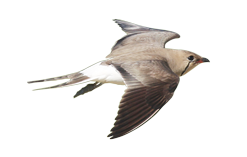WaterLANDS – European Green Deal project will lead largescale restoration of European wetlands
WaterLANDS: Water-based solutions for carbon storage, people and wilderness
Project objective
WaterLANDS will undertake hands-on restoration of specific wetland sites, covering an initial 10,500 ha, and create best practice models that can be applied to wetland restoration at other sites. By engaging with local communities and stakeholders, the project will ensure that wetland restoration results not only in environmental gains, but also social and economic benefits for the communities involved.
The five-year project is led by University College Dublin (UCD), Ireland and brings together 31 other organisations from research, industry, government and non-profit sectors in 14 European countries.

The Tour du Valat contributes to the project by integrating lessons learned from its restoration actions in the Camargue. These lessons concern both environmental and governance issues. The exchange of experiences aims to improve the effectiveness of restoration on new sites in Europe.
Actions & methodology
WaterLANDS revolves around 6–8 large-scale wetland restoration initiatives or “living labs”, in different stages of implementation across the European Union: from unprotected wetlands with no measures, to newly established wetlands beginning remediation works, through financed plans at the verge of implementation, to fully implemented restoration efforts. Connectivity with communities in design, implementation and management is essential, to learn from the wealth of local experience and
knowledge and ensure the long-term resilience of projects, tailored to the socio-ecological conditionality of each site. By sharing ecological, community, governance and financial expertise, the reshaping of attitudes to wetlands, and the modes of their sustainable conservation and exploitation, can be effected.
We believe that to build more sustainable and resilient landscapes, restoration of ecosystem services should go hand-in-hand with development of socio-economic incentives. We aim to assess and demonstrate how this can be achieved in different landscape and social settings through a Participatory Action Research (PAR) model. More specifically we aim to:
1) Identify bottlenecks and solutions for upscaling wetland restoration at the landscape level
2) Develop process-indicators that enable assessment of restoration success (service provisioning, socio-economic embedding and financial sustainability)
3) Demonstrate successful restoration pathways/trajectories and associated business models
4) Incubate scalable innovation across the “living lab” network and beyond the life of this project, to build healthy rural communities supported by the ecosystem services provided by functioning wetlands.
About WaterLANDS
- Project website : www.waterlands.eu
- Twitter: @WaterLANDS_EU
Team
- Projet leader: Lisa Ernoul
- Project members: Marc Thibault, Antoine Gazaix
- Project duration: 2021-2026
Partners
Technical partners
- University College Dublin (Ireland)
- NUI Galway (Ireland)
- National Parks and Wildlife Service (Ireland)
- Community Wetlands Forum (Ireland)
- ERINN Innovation Ltd. (Ireland)
- Landscape Finance Lab (Austria)
- Prospex Institute (Belgium)
- WWF Bulgaria (Bulgaria)
- Balkani Wildlife Society (Bulgaria)
- University of Tartu (Estonia)
- Estonian Fund for Nature (Estonia)
- Estonian State Forest Management Centre (Estonia)
- AS Tootsi Turvas (Estonia)
- University of Eastern Finland (Finland)
- Geological Survey of Finland (Finland)
- Plan Bleu (France)
- Tour du Valat (France)
- Succow Foundation (Germany)
- Ca’ Foscari, University of Venice (Italy)
- We are here Venice (Italy)
- Wageningen University (Netherlands)
- Wetlands International (Netherlands)
- Radboud University Nijmegen (Netherlands)
- Provincie Groningen (Netherlands)
- Staatsbosbeheer (Netherlands)
- Centrum Ochrony Mokradel (Poland)
- University of Warsaw (Poland)
- Estacion Biologica Doñana – CSIC (Spain)
- Uppsala University (Sweden)
- Natural England (United Kingdom)
- IUCN-UK Peatland Programme (United Kingdom)
- University of Leeds (United Kingdom)
- (Monténégro)
Financiel partners
- European Commission’s Green Deal (Horizon 2020 research and innovation programme under Grant Agreement no. 101036484 )



